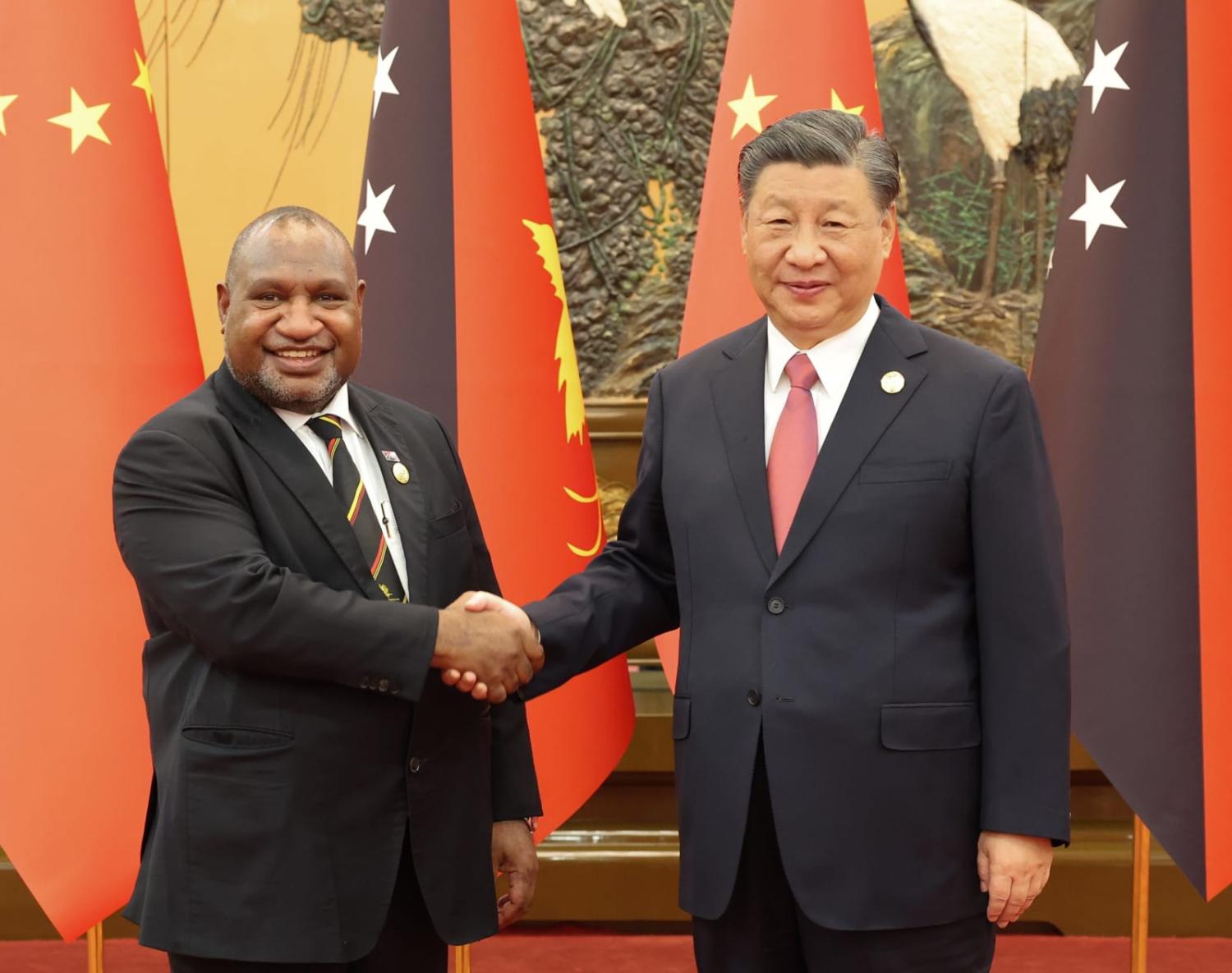Last month, China signed a significant deal with Papua New Guinea, a downstream processing agreement to manufacture products using locally sourced nickel and cobalt. With this agreement, China is signalling a preparedness to help PNG industrialise. And it is exactly the kind of development pursued by PNG Prime Minister James Marape under his slogan to make the country the “Richest Black Christian Nation”. Marape also told the Lowy Institute in December that “I do not want forever to be a recipient of aid and grants” and that he wants to see PNG develop with “projects after projects after projects”.
The Memorandum of Understanding signed between Ramu NiCo Management Limited (Ramu NiCo) and Kumul Minerals Holdings Limited on 9 January underscores the strengthening of PNG-China relations. It follows Marape’s state visit to Beijing in October last year, where he sought assurances from China’s President Xi Jinping to help PNG pursue industrialisation and modernisation. PNG and China are also pursuing a free trade agreement.
As big power competition in the Pacific intensifies, Marape has pledged neutrality. He has strengthened security ties with traditional powers, including signing a defence cooperation agreement with the United States in May and a security agreement with Australia in December – and this week will present to the Australian parliament. It has also come to light that PNG and China are in the early stage of negotiations about policing assistance. At the same time, PNG is working to attract more investment from China and to boost exports. China is already PNG’s largest trading partner, but there is potential for more growth.
In this spirit, Marape inaugurated the PNG-Asia Investment Conference in Hong Kong en route to Beijing in October. He highlighted the need to bring Chinese and other Asian investors to “help realise the government’s strategy to go into downstream processing”. Ramu NiCo has a history stretching over a decade as a majority China-funded and owned project, and from the perspective of PNG leaders and senior bureaucrats has provided employment opportunities, funded landowner businesses, set up sustainable projects in landowner communities and contributed to revenue flow. Hence, the request to help with downstream processing in the country.
But the PNG public may think differently. In 2023, we surveyed 114 current and former students studying international relations at the Divine Word University in PNG’s Madang Province, where the Ramu NiCo project is located, investigating students’ perceptions about Ramu NiCo’s social corporate responsibilities. Almost 70 per cent of the respondents said they support the government efforts to develop a close relationship with China. But they expressed wariness about Ramu NiCo’s corporate social responsibility initiatives in meeting the needs of local communities, offering an average score of 4.1 on a scale of 1-10 (1: not satisfied at all, 10: very satisfied). This, despite the company publishing a periodic newsletter in hard copy and sharing information about its operations in the mainstream media, documenting in brief the company’s efforts over the last decade to help the country’s development.
More than two-thirds of those surveyed reported they do not welcome more investment from China in the mining sector. But when asked whether they would welcome more Australian investment in PNG’s mining sector, half of them said “Yes”. It points to a divergence of perceptions. A similar number said in retrospect they felt approval of Ramu NiCo was mistaken.
The findings also appear to be consistent with early survey research showing tepid local support for investment from China in discouraging results for Beijing.
Compared with PNG government leaders, university students at least appear more focused on the risks in a closer PNG-China relationship, such as debts, transparency, environmental pollution and the over-exploration of local mining resources. It presents an example of contrasting views between Pacific elites and other sections of the local community. It also suggests China needs to pay more attention to views outside of government, which could affect implementation and the image of projects it funds, extending far beyond Ramu NiCo.

